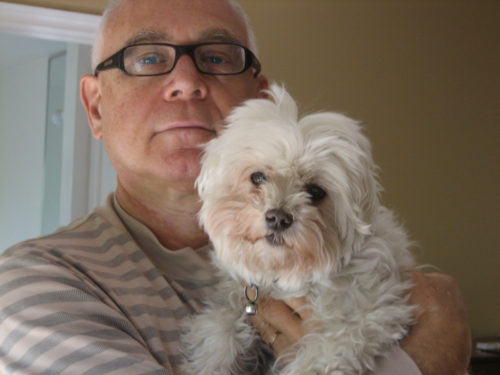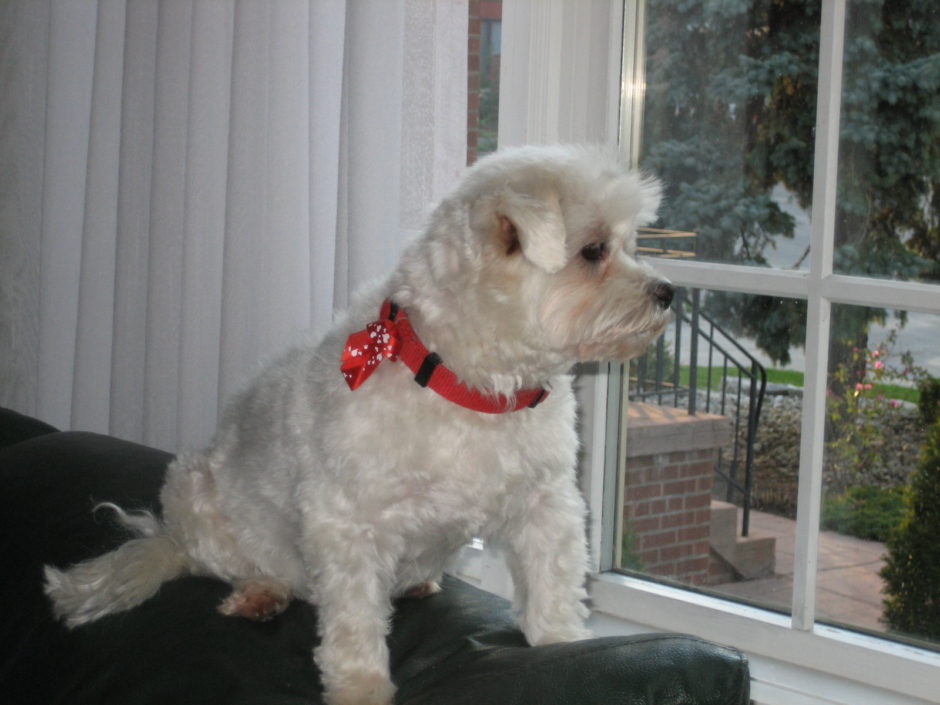Images of Pablo flood my mind, and a smile creases my face, whenever I spy a Maltese.
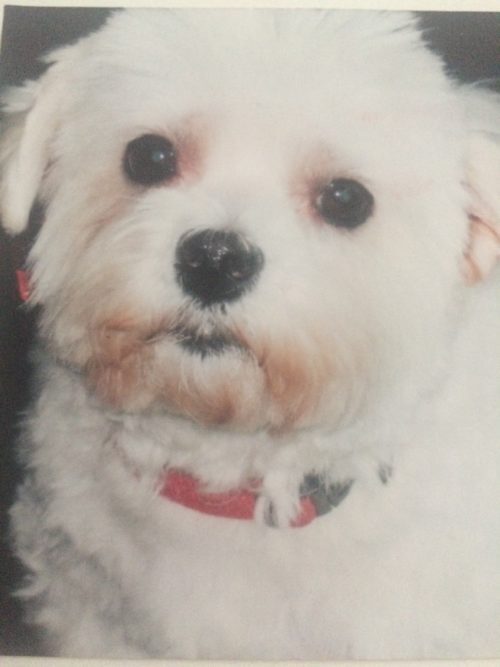
No, I’m not talking about people from the Mediterranean island of Malta. I’m referring to that special breed of canine that so touches my heart.
Until Pablo came along, I had no special affinity or particular affection for dogs. True, my wife and I owned a Maltese named Elmo, a gift from my daughter. And while Elmo was a good-looking hound, he was temperamental and sometimes even snappish, especially around strangers. I never really knew when he might bite. And he was quite demanding.
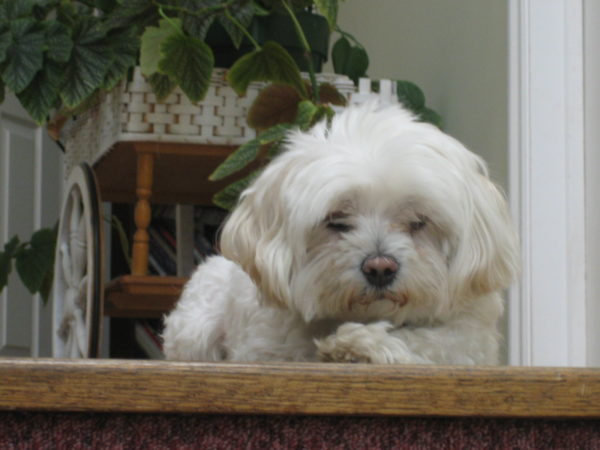
Due to his prickly personality, I never formed a deep bond with him. Yes, I cared for him, took him on walks, fed him and cleaned up after him. In short, I treated him kindly. I was a good dog owner. But as I’ve suggested, Elmo and I did not always click. My wife, I believe, had a much better relationship with him.
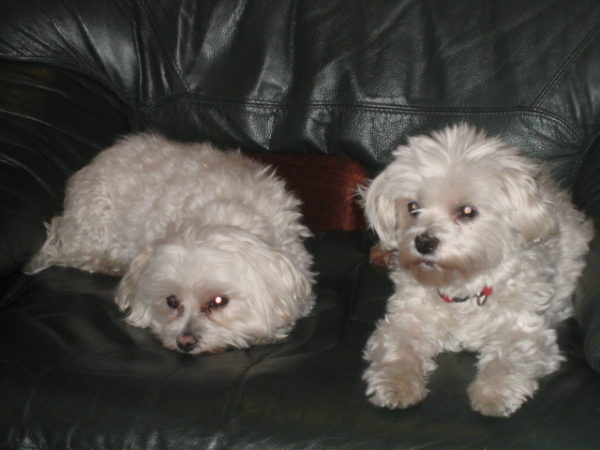
Pablo came into my life after Elmo had been with us for five years. He was dropped off at our house by a friend in the late spring of 2004 on the understanding that we would look after Pablo while he was away on an overseas trip.
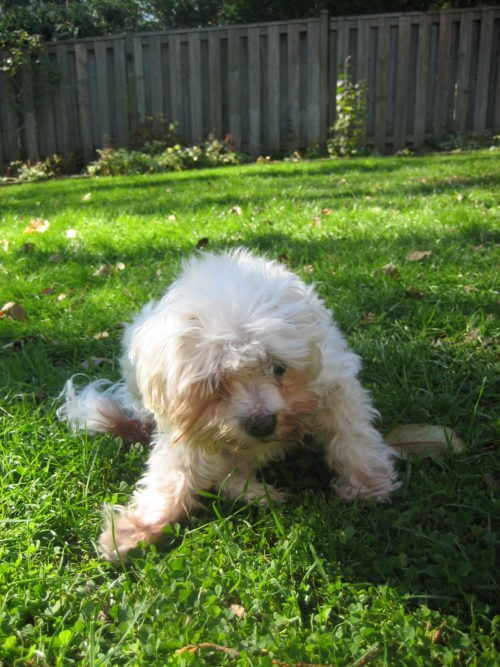
Pablo, or Pabby, was a quintessential Maltese. He had a silky white coat, coal black eyes and a face like an angel. In a word, he was adorable. And he was blessedly quiet, mild-mannered and gentle. Virtually the only time he ever barked was when he was ravenous or needed some fresh air. He was, to use the cliche, “man’s best friend.”
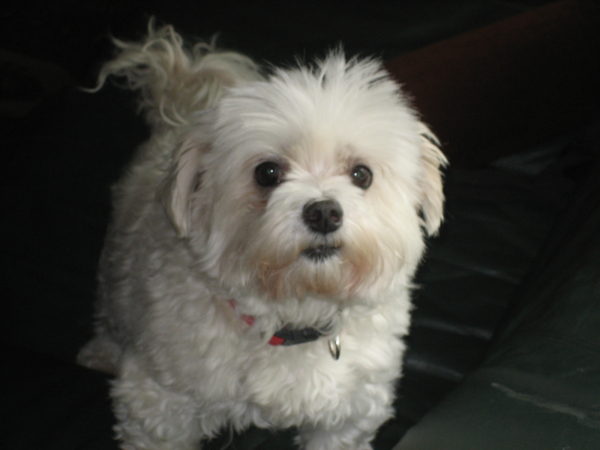
I became his co-caregiver, though my wife was usually the one who’d give him his baths. When he was wet and shivering after a good soaking, Pablo was a rather odd, even ugly creature. But as soon as he had shaken the rest of the water off his glossy fur, he was beautiful again. The transformation was always a source of amazement to me.

Pablo, as well as Elmo, slept on our king-size bed. Sometimes, Pablo would plant himself next to my pillow, nuzzling his face against mine and breathing softly. The next morning, depending on the season, I’d open the kitchen door and let him go to the sun deck or the garden to relieve himself. When he had finished, I’d scoop him up in my arms — he weighed about eight pounds — and bring him back in.
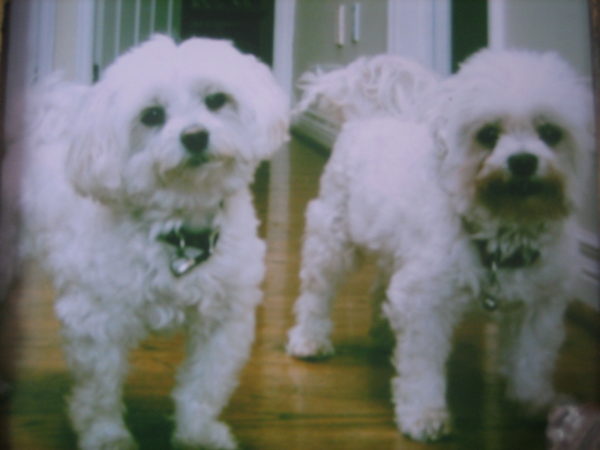
After breakfast, I’d take Pablo — and Elmo — for a walk around our leafy neighborhood. Being a Maltese, Pablo invariably led the way, pausing here and there to sniff the ground, Occasionally, he would pee, delicately lifting his hind leg.
Pablo was a sight to behold, a handsome specimen who stopped women and children in their tracks. They would ask me what he name was and how old he was. And they would always pet him. Pablo enjoyed the attention, never barking, snarling or upsetting his legion of admirers.
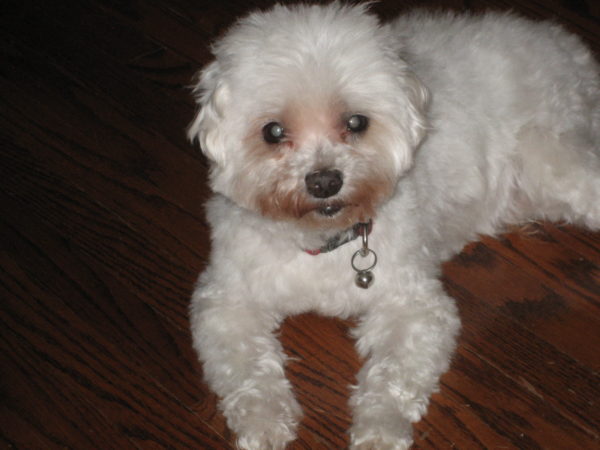
When our friend got back from abroad, he asked us whether we’d want to keep Pablo on a permanent basis. Being surprised by his question, we initially hesitated, but after a moment’s reflection, we were only too glad to take him. He was already a true member of the family, and we liked him immensely.
As he grew older, health problems plagued Pablo.
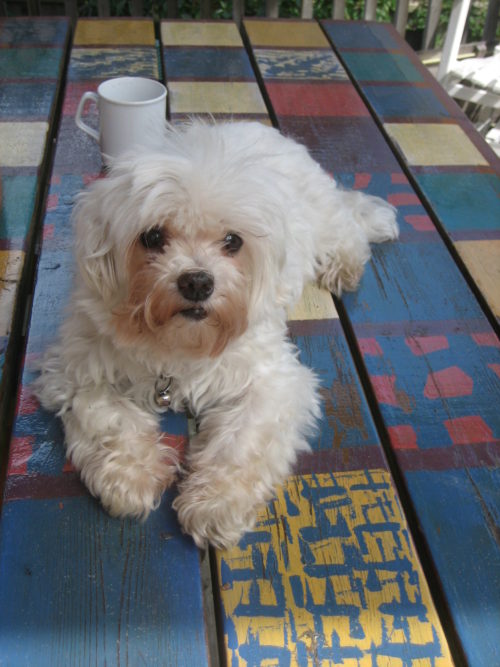
He contracted diabetes, which meant I had to inject him with insulin twice a day. Being squeamish about that process, I was forced to overcome my fears and learn the technique. Not being a complainer, Pablo didn’t seem to mind the injections. Maybe he knew they were good for him.
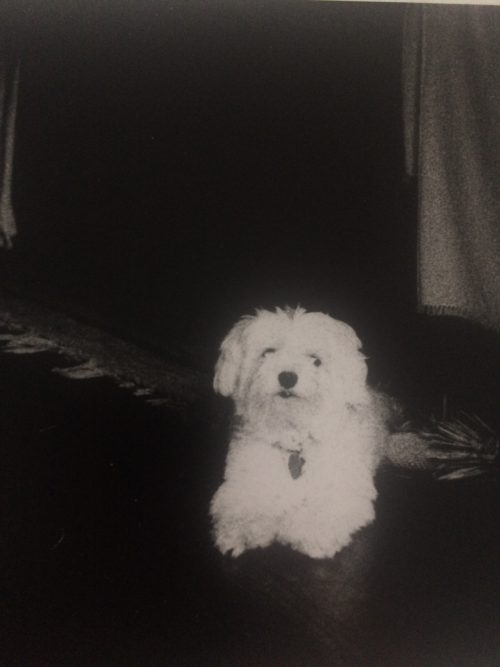
Much to our dejection, Pablo gradually lost his eyesight. He was not blind, but his vision so degenerated that I had to carry him to his favorite stomping grounds. As he wandered around, he’d sometimes bump into obstacles, daintily recoiling in surprise.
Eventually, Pablo also lost much of his hearing, making him all the more dependent on us. As he became more vulnerable, my devotion to him increased correspondingly.
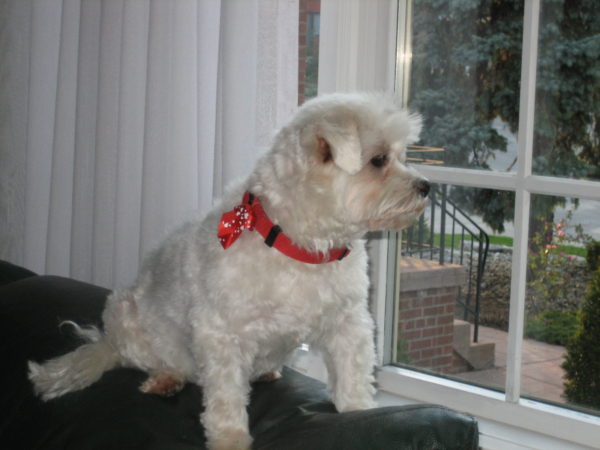
As he declined, we stopped buying him regular dog food, and my wife began cooking for him. He usually ate his meals with gusto, encouraging us to believe he still had a lot of life left in him.
We were wrong.
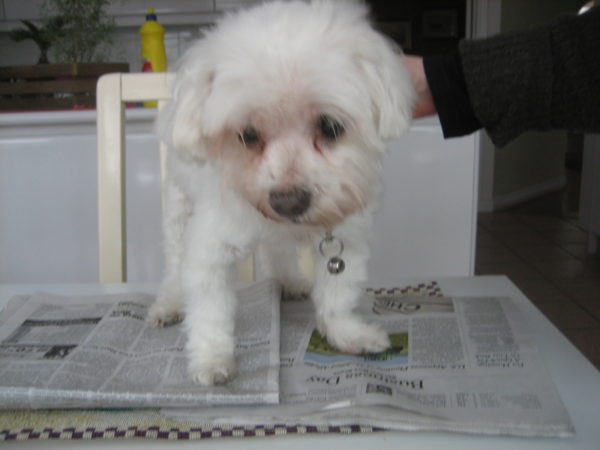
During his last year, when he lost much of his appetite and joie de vivre, he withdrew into himself. He seemed happier curled up in a ball rather than out on a stroll.
We continually asked ourselves whether we should put him out of his misery. Of course, we couldn’t do it. Pablo meant so much to us. We wanted him around for as long as possible.

By then, Elmo had been gone for about four years. He had died at the age of nine, leaving my wife forlorn and devastated.
For Pablo, the end came quickly and wrenchingly. One night, while he was resting on our bed, he suddenly went into convulsions. In frantic desperation, my wife administered mouth-to-mouth resuscitation, courageously trying to revive him. I could not bear watching and retreated temporarily into the bathroom.
Then I heard a sudden cry and sobbing. “My dear Pablo,” my wife wailed inconsolably. “My dear Pablo.”
Pablo lay quietly on a pillow, his utter stillness chilling me to the bone. I felt a gulp in my throat and tears soon ran down my cheeks. I drew what solace I could from the knowledge that Pablo had lived longer than most dogs, his illnesses notwithstanding. He was 17 when he passed away.
Today, when I look at photographs of Pablo, I feel a twinge of emptiness and sadness and a profound sense of loss. Pablo left a void in our lives that cannot and never will be filled.
There was only one Pablo, and Pabby will remain deeply embedded in my heart until my dying day.
